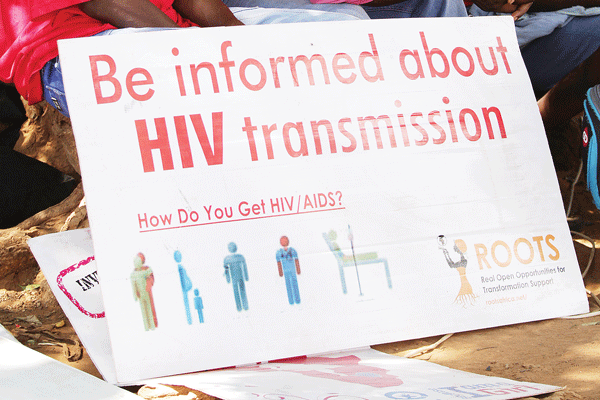
By Desmond Chingarande in Mexico
Over 5 000 delegates from 140 countries have converged in Mexico for the 10th International Aids Society (IAS) 2019 conference on HIV science where global health experts are calling for urgent action to address the health needs of millions of people affected by humanitarian crises.
The conference seeks to address issues around the global response to the HIV and Aids epidemic, challenges, including humanitarian disasters, country conflicts and difficulties of reaching specific populations like women and girls, that threaten the roll out of universal healthcare, including HIV services.
“From Syria to Venezuela, the challenge of providing HIV services in humanitarian crises threatens global progress in confronting the epidemic. People in emergency settings are especially vulnerable to new infections. We must work to ensure that HIV prevention and treatment are an integral part of global relief efforts,” Anton Pozniak, president of the International Aids Society (IAS) and international scientific chair of IAS 2019, said.
Pozniak said more than 135 million people around the world are in need of humanitarian assistance mostly due to conflict, with natural disasters driving the need for emergency assistance.
Brenda Crabtree Ramirez, IAS 2019 local scientific chair said this year’s focus was on central America and Venezuela, where there is political instability which has driven mass migration and strained local health systems.
Ramirez said of the 120 000 people living with HIV in Venezuela, only half were accessing antiretroviral treatment and less than 7% had achieved viral suppression in 2017.
“Latin America is one of the most unequal regions of the world. Efforts to control the HIV epidemic will only succeed when the enormous differences in income distribution and well-being are addressed,” Ramirez said.
- Chamisa under fire over US$120K donation
- Mavhunga puts DeMbare into Chibuku quarterfinals
- Pension funds bet on Cabora Bassa oilfields
- Councils defy govt fire tender directive
Keep Reading
Another expert, Quarraisha Abdool Karim of Columbia University and Centre for the Aids Programme of Research in South Africa (Caprisa) associate scientific director, said globally, women and girls, are facing structural and societal barriers to accessing healthcare, including stigma and discrimination.
Karim said health providers lack specific knowledge around women’s healthcare with more than 29 countries requiring the consent of a husband or woman’s partner to access sexual and reproductive health services.
UNAids estimated that in sub-Saharan African countries, which includes Zimbabwe, three in five new HIV infections among 15-19 year olds are among girls.
Ambassador Deborah Birx, United States Global Aids coordinator and US special representative for Global Health Diplomacy said over the past 16 years, the US President’s Emergency Plan for Aids Relief has saved more than 17 million lives and helped transform the global HIV response.
She said her country is proud of the remarkable progress being made by many of the countries they support, and will remain committed to accelerating efforts toward achieving epidemic control country by country, community by community.
IAS 2019 will also feature the latest innovations in treatment, cure and prevention and the latest on-the-ground strategies to address inequities in HIV response.
The conference, officially opened yesterday, will close tomorrow.











